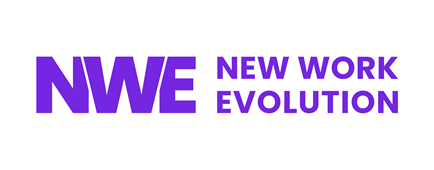New Work - The future of the working world
New Work - What does change mean for the world of work?
New Work is revolutionizing the world of work. In times of digitalization and social change, the way we work is changing fundamentally. The New Work concept, coined by Frithjof Bergmann, focuses on people's needs. Flexibility, self-realization and a sense of purpose are central components of this new world of work.
Today, New Work is inextricably linked to changes in the world of work. Companies are increasingly relying on working from home, flexible working hours and digital tools to meet the demands of the modern working world.
Origin and significance of New Work for the world of work
Frithjof Bergmann, the founder of the New Work concept, recognized early on that the traditional world of work was no longer up to date. In a society characterized by digitalization, new ways of shaping work must be found. New Work means more freedom, more responsibility and meaningful work - the cornerstones of a modern working world.
The vision of New Work shows that work should be more than just a means to an end. The new world of work is about developing your own talents and finding real fulfillment in your job.
Frithjof Bergmann and the true meaning of “New Work”
The most important features of New Work in the new world of work
- Flexible working: New Work means that employees can decide for themselves when and where they work.
- Self-determination: In today's world of work, personal responsibility is crucial.
- A sense of purpose: Work should serve personal development - a central element of New Work.
- Technological support: Digitalization enables location-independent working and promotes the spread of New Work.
- Agile organizations: In a dynamic working world, flexible structures and open communication are needed.
New Work is shaping the modern working world at all levels - from the corporate structure to individual working methods.
Examples of New Work in the world of work
Numerous companies are successfully integrating New Work into their working environment:
- SAP relies on hybrid working models and thus promotes New Work.
- Automattic enables completely location-independent working - a prime example of the implementation of New Work.
- Google creates creative spaces that promote New Work principles and actively shape the new world of work.
These companies show how New Work and digitalization are having a lasting impact on the world of work.
Advantages and challenges of New Work in the world of work
Advantages:
- Greater satisfaction: Employees experience the world of work as more meaningful and motivating.
- Innovation and creativity: New Work creates an environment for new ideas.
- Work-life balance: Flexible models improve the quality of life.
Challenges:
- Rethinking leadership: New leadership styles are needed in the world of New Work.
- Developing digital skills: Digitalization requires continuous learning.
- Cultural change: Companies must actively support far-reaching changes in the world of work.
New Work offers enormous opportunities, but also poses new challenges for the world of work.
Successful introduction of New Work into the world of work
If you want to integrate New Work into your own working environment, you should
- Build trust: New Work models only work with mutual trust.
- Provide technology: Without digitalization, New Work cannot be implemented in the modern working world.
- Enable further training: Employees must be made fit for the requirements of New Work.
- Promote cultural change: The values of the working world must be aligned with the principles of New Work.
Frequently asked questions (FAQ) about New Work and the world of work
New Work describes new forms of work that focus on flexibility, meaningfulness and self-realization. In the modern world of work, the focus is on people, and digitalization is creating new ways of working - regardless of time and place.
New Work is important because the requirements in the world of work have changed fundamentally. Employees want more autonomy, meaning in their work and a better work-life balance. Companies that focus on New Work can attract and retain talented employees in the long term.
Digitalization is a key driver of New Work. Digital technologies enable mobile working, virtual teams and a networked working environment. Without these developments, the implementation of New Work principles would not be possible in many companies.
New Work offers companies many advantages: greater employee satisfaction, more innovation, a stronger employer brand and a flexible working environment that can react quickly to change. Companies that integrate New Work are better positioned for the future.
To successfully introduce New Work into the world of work, companies should rely on trust, modern technologies and continuous training. It is equally important to create a corporate culture that promotes openness, personal responsibility and a sense of purpose.

